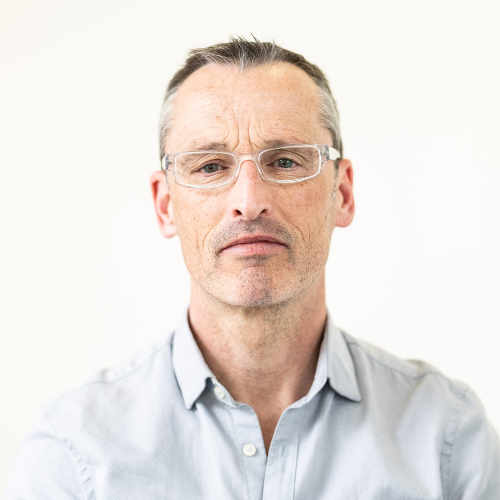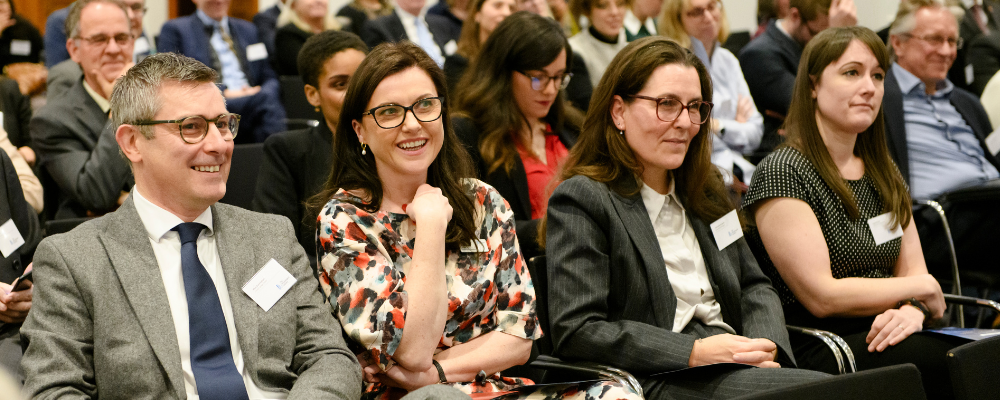
Voice of the Editor
Professor Damian M. Bailey, Editor-in-Chief, Experimental Physiology
“I’d like to extend my personal congratulations to our editorial team and authors alike for some notable achievements. We are proud to celebrate publication of our first ‘complete’ Registered Report in physiology, including both a Protocol and Results. Conceptually, Registered Reports differ from traditional scientific reporting, differentiated by the integration of peer review before data collection physically begins, and it offers unique benefits.”

It’s wonderful to contribute to this Autumn Edition and re-launch of Physiology News, it’s been sorely missed! As I write this column, it’s been almost a month since the autumnal equinox and I can’t believe how quickly the summer has come and gone, as we hunker down here in the UK ahead of those long, dark, wet and windy nights. Climate change reminds me that our seasons are projected to become even warmer, windier and wetter on average. And I spare a thought for our American colleagues, who only three days ago, were subject to the unimaginable horrors of the twin blows delivered by hurricanes Milton and Helene. On the upside, hot-off-the-press only three hours ago, a new climate network just announced that Europe’s medical schools will provide more specialist training on diseases linked to the climate crisis. Physiology needs to be upfront and centre in the curricula.
And so to what our team at Experimental Physiology has been up to and what exciting things are on the horizon. Perhaps best to start with an exciting initiative given that this edition is devoted to the theme of exercise physiology and sport science!
We are keen to launch a series of editorials dedicated to ‘The physiology of lived experiences’. This concept, originally conceived by our former Editor-in-Chief Professor Mike Tipton, seeks to combine personal experience with a review of the physiology underpinning that experience, to help demonstrate the broad relevance and integrated translational impact of physiology. The series has been kickstarted by Professor Tipton himself as he takes us through a day at an ultra-endurance, multi-sport ‘Ironman’ triathlon. ‘Any old iron, man’ makes for compelling reading highlighting his personal ‘tackle’ with nutrition, wearable technology, training theory, temperature regulation, the athletic heart and ageing. Please reach out if you’d like to contribute to this unique format, that goes beyond the traditional case study report.
We’re also keen to pour more oil on our Special Issues fire! Keep your eyes peeled for Physiology and the Olympics, and Space physiology: challenges and solutions for a journey to Mars, that are soon to be published. Those that are currently ‘live’ on our platform include Exercise as Medicine, Mechanotransduction, muscle spindles and proprioception, The cellular/molecular mechanisms and potential treatment strategies for kidney diseases, and Thermal physiology in health and disease: mechanisms and therapeutic applications. We’re thrilled to have additional specialist support from Josh Hersant, who has been promoted to Deputy Managing Editor (congratulations Josh!) to help with building our Special Issues ‘pipeline’. Please complete the Special Issue proposal form and get in touch with Josh (jhersant@physoc.org, see photo) if you have an idea in mind, it’s a great opportunity to push your physiology. Josh is friendly, knowledgeable and a ball of enthusiasm, he’ll help guide you through the process from conception to submission!
I’d like to extend my personal congratulations to our editorial team and authors alike for some notable achievements. We are proud to celebrate publication of our first ‘complete’ Registered Report in physiology, including both a Protocol and Results. Conceptually, Registered Reports differ from traditional scientific reporting, differentiated by the integration of peer review before data collection physically begins, and it offers unique benefits. Please consider this publication category, since we at Experimental Physiology are fully committed to improving how research is conducted, assessed, reported, and incentivised. And keep an eye out for an upcoming Editorial by our Senior Editor, Dr Peter Rasmussen, who will help put this category into clearer practical perspective to whet your creative appetite.
I’d also like to congratulate the winner of our Mid-Career Researcher Prize, Dr John Ussher (The Multifaceted Roles of Ketones in Physiology) and the runners-up, Drs Oliver Witad (Perioperative nutrition for preservation of musculoskeletal health outcomes following orthopaedic surgery) and Davide Filingeri (How hot is too hot? A review of the complex interplay amongst physiological, perceptual, and behavioural mechanisms of human tolerance to heat stress). This is an important prize category that rewards and highlights our future leaders in physiology (see the original Editorial by one of our Assistant Reviews Editors, Dr Joseph Costello).
And finally, congratulations to Drs Sophie Broome (Australian Catholic University), Callum Brownstein (Newcastle University), Daniel Craighead (University of Minnesota), and Fabio Sarto (University of Padova), the winners of our Future Leaders Scheme. They will join our Editorial Board for a period of two years, and implement their SI proposal (as part of the selection criteria) under the close mentorship of a selected member(s) of our Senior Editorial team. Upon successful completion of their term, our ‘Future Leaders’ will be invited to join the Editorial Board as a Senior Editor. The future of physiology is bright and we welcome them all aboard!
Congratulations to our very own Josh Hersant who was recently promoted to Deputy Managing Editor at The Physiological Society. This role will see Josh more focussed towards the wider strategy and long-term growth of Experimental Physiology that will see our team expand our Special Issues ‘pipeline’.
Please get in touch with Josh If you have an idea (jhersant@physoc.org).




